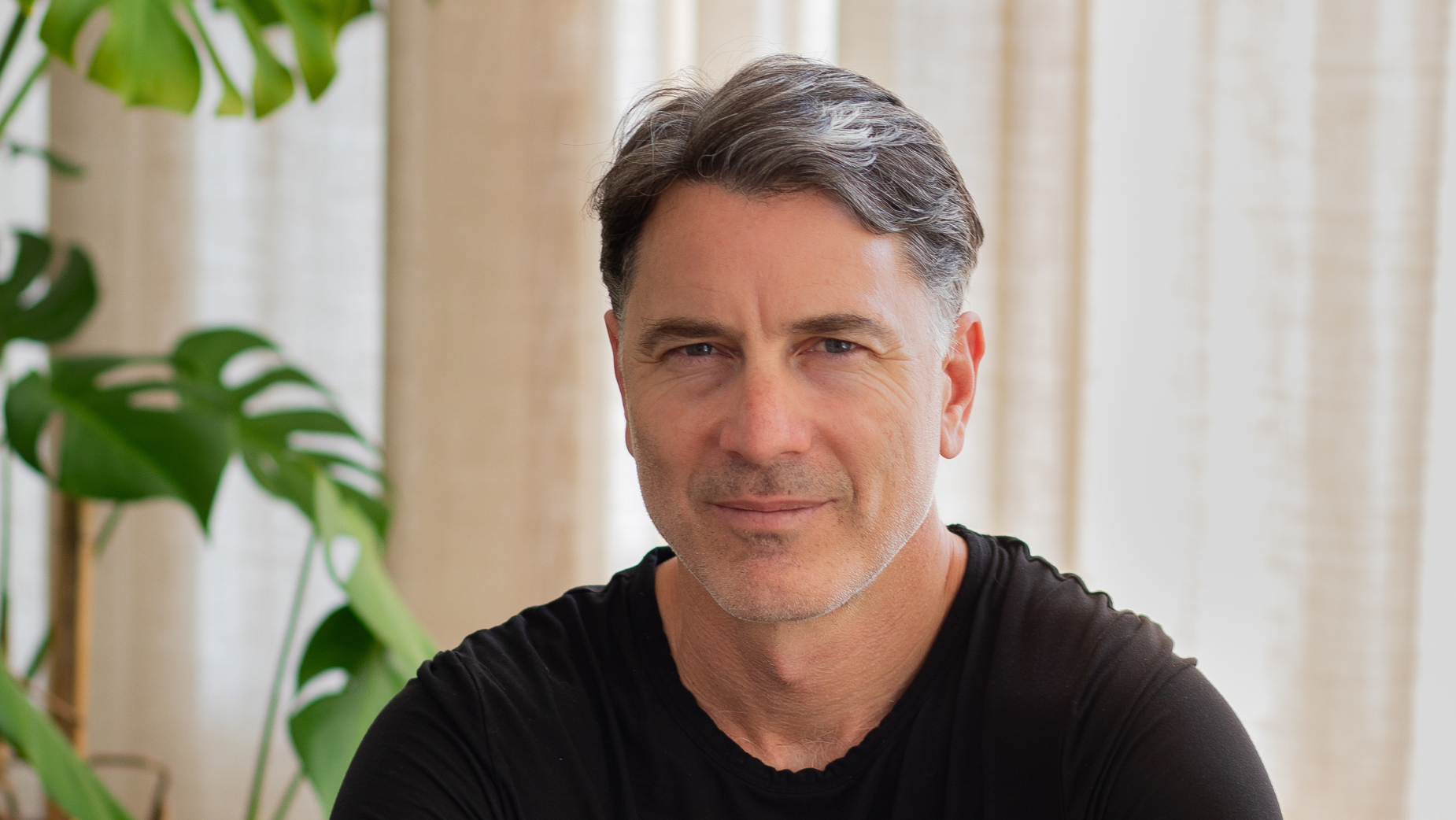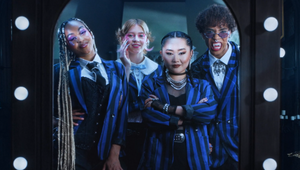
Bossing It: Ignacio “Nacho” Ferioli's Three Aspects of Leadership

Ignacio “Nacho” Ferioli is a multidisciplinary creative with 20 years of experience building agencies and creative departments from scratch, delivering world-class work to markets all over the globe. As GUT’s chief creative officer for Europe, Nacho is based in Amsterdam, where he spearheads the agency's creative strategy across the continent.
With more than 60 Cannes Lions awards under his belt and 20 years of experience building agencies and creative departments from scratch, Nacho is known for his unique ability to deliver breakthrough work that captures the cultural zeitgeist for clients such as Coca-Cola, Unilever, Mercado Libre, Anheuser Busch InBev and Volkswagen.
He has racked up international prizes from prestigious institutions including D&AD, The Effies, The One Show and The International ANDY Awards, among others. He was named Art Director of the Year by the Argentine Creative Circle in 2012, and in 2018 he was one of only 13 agency leaders outside the US to make it onto Adweek’s Creative 100 list.
Nacho was behind the 2016 "Manboobs4boobs" campaign for MACMA, which sparked a global debate around social media censorship and was spontaneously translated into 10 different languages. Manboobs4boobs won the United Nations Grand Prix for Good at Cannes Lions, and the very first D&AD Impact White Pencil for Latin America in 2016 – making it the most awarded campaign in the history of Argentine advertising.
Nacho joined GUT Buenos Aires in 2019 and led the opening of GUT Mexico office in 2023, before joining the network’s European team earlier this year. Now, as he embarks on this new chapter, Nacho's goal is clear: to transmit the agency's culture and generate business in the way he knows how, based on brave ideas, manifesting GUT’s mission to become the most diverse, creative, and influential agency in the world.
Nacho is from Argentina, based in Amsterdam. He speaks Spanish and English.
LBB> What was your first experience of leadership?
Ignacio> My first leadership experience was at DAVID in 2012 when I debuted as an executive creative director. The agency had just moved to a larger office, and the first thing the team asked me was what kind of plants I wanted to put on the terrace: ficus or ferns? That’s when I understood that, my leadership role would extend far beyond what I was used to doing.
LBB> How did you figure out what kind of leader you wanted to be – or what kind of leader you didn’t want to be?
Ignacio> I believe leaders are made up of three things: what we liked about the leaders we have had in the past, what we didn’t like and don’t want to repeat, and all of that is combined with who we are.
LBB> Did you know you always wanted to take on a leadership role? If so how did you work towards it and if not, when did you start realising that you had it in you?
Ignacio> No, I didn’t know it from the beginning. I spent the first few years trying to understand how this industry worked and trying to come up with the best ideas possible.
This changed in the summer of 2006 when I was working at La Comunidad Buenos Aires. That year, the agency closed for two weeks during the holiday break, but a team had to remain active in case of any unforeseen issues, and to oversee some work that couldn’t wait until after the holidays.
For the first time, I was put in charge of a team of four creatives, two account executives and one producer (remember, back then remote work didn’t exist). It was two weeks that I and the team I was working with really enjoyed, and I discovered that I liked being 'in charge,'. That’s when I got the leadership bug.
LBB> When it comes to leadership as a skill, how much do you think is a natural part of personality, how much can be taught and learned?
Ignacio> I believe what’s 'natural' about leadership is that some people want it, and others prefer not to take on that responsibility—and that’s okay. No structure works with only leaders because, eventually, everyone would compete for a position rather than strive to improve the work.
And yes, I think leadership can be taught, especially in advertising where what we do is closer to a craft than a profession and like any craft, it is learned by observing, listening and doing.
LBB> What are the aspects of leadership that you find most personally challenging? And how do you work through them?
Ignacio> Sometimes leadership requires us to detach ourselves from all emotional connections to make the best decisions for the work and the people. I often struggle with that part, and constantly remind myself that even the decisions that may have an emotional impact will ultimately be what’s best for the people who work with me.
LBB> Have you ever felt like you failed whilst in charge? How did you address the issue and what did you learn from it?
Ignacio> I have failed many times, and I will continue to do so. There is no 'safe' way to exercise leadership. But when I do fail, the first thing I do is take responsibility and communicate it to my team. What have I learned? I don’t have a specific example. For me, learning is the natural outcome of mistakes. If you're not learning from your mistakes, then you need to re-evaluate your leadership skills.
LBB> In terms of leadership and openness, what’s your approach there? Do you think it’s important to be as transparent as possible in the service of being authentic? Or is there a value in being careful and considered?
Ignacio> Transparency is fundamental for a leader and is at the core of my personality. I’ve had bosses who weren’t transparent, and I always struggled with that approach. I always prefer to be spoken to truthfully rather than be left guessing about what people think about me or my work. I believe you can be thoughtful and considerate without ceasing to be transparent.
LBB> As you developed your leadership skills did you have a mentor, if so who were/are they and what have you learned? And on the flip side, do you mentor any aspiring leaders and how do you approach that relationship?
Ignacio> My mentor is Gastón Bigio, whom I have worked with for over 15 years. I've learned almost everything I know from him. He taught me that a good leader knows when someone is ready to take on new challenges, even if that person doesn't always realise it themselves.
Part of a good leader's responsibility is to push talent toward opportunities they may not feel ready for to help remove the limits individuals often impose on themselves. It's critical to encourage people by saying, 'Go and do it; it'll be fine.' I try to apply, or rather replicate, that approach.
LBB> In continually changing market circumstances, how do you cope with the responsibility of leading a team through difficult waters?
Ignacio> I think the only way is to stay informed and, above all, to remain receptive. I’m 45 years old, and the second requires more effort than the first.
LBB> As a leader, what are some of the ways in which you’ve prioritised diversity and inclusion within your workforce?
Ignacio> Diversity and inclusion are a fundamental part of our agency's DNA. As a leader, I am responsible for ensuring we are intentional about building our teams and expanding our culture with diversity and inclusion at the forefront. I firmly believe that diversity is a key part of creativity; without it, we would undoubtedly be a less creative agency.
LBB> How important is your company culture to the success of your business? And how have you managed to keep it alive with increases in remote and hybrid working patterns?
Ignacio> In any environment where people are part of something –whether it's a football team, a pet shop, or an advertising agency – culture is absolutely everything. Without culture, there is no sense of belonging; without belonging, there is no connection. It's just a workplace that doesn’t represent you. Culture is the main reason I came to live in Amsterdam – to bring more of the GUT culture to this office.
LBB> What are the most useful resources you’ve found to help you along your leadership journey?
Ignacio> Being surrounded by people smarter than me.















